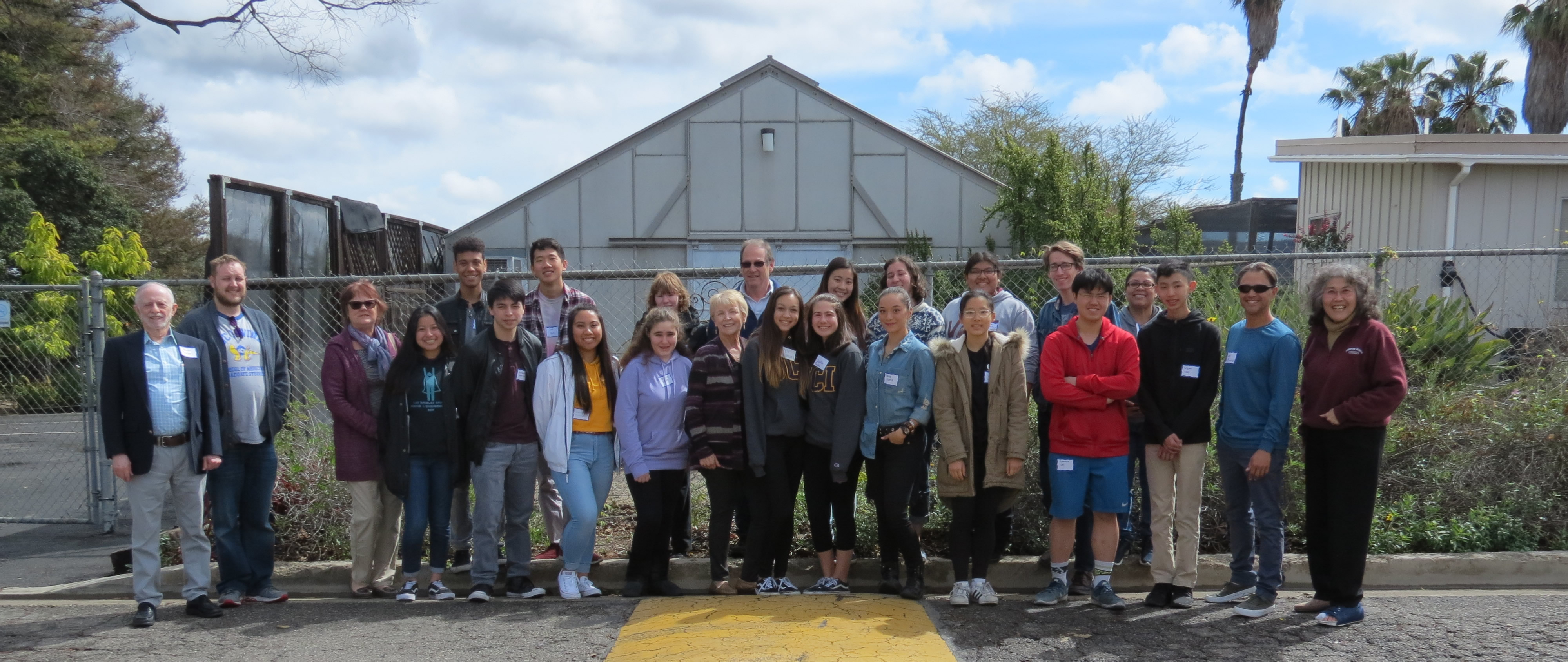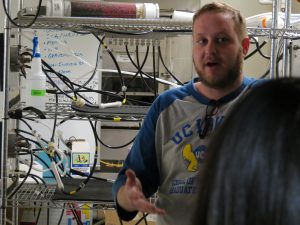
The Air Pollution Health Effects Laboratory (APHEL) was established with California Air Resources Board (ARB) funds in 1973 on the U.C. Irvine North Campus under the direction of Robert F. Phalen, PhD to study the health effects of current and projected air pollutants inhaled by California populations. The initial purpose of the laboratory was to understand the health effects of current and plausible future mixtures of particles and gases on pulmonary histology, physiology, and most importantly lung defense mechanisms. Michael T. Kleinman PhD is now Co-Director and is in charge of animal, human and in-vitro research. The ARB has provided research support continuously from 1973 to the present.
Throughout the intervening 45 years the research expanded beyond air-pollution mixtures to study airborne particles and gases relevant to occupational, medical, military, and terror related exposures. The funding expanded to include several State and Federal agencies, industry, pharma, private institutes, and other sources including the U.C. Office of the President. Studies have included basic aerosol science, air chemistry, inhaled dose modeling, radioactive aerosols, in-vitro models, extrapolation, asbestos, tobacco and incense products, in-vehicle and indoor air contaminants, lung development, and non-pulmonary effects of inhaled materials. From the beginning, APHEL’s mission has included training, teaching, and student research, as well as institutional, governmental and public service.

The laboratory has the capability to conduct controlled exposure studies in rodents via whole-body (in large chambers), nose-only (in manifolds), and lung only (with endotracheal tubes and via tracheostomies) administration. The laboratory also has expertise in controlled exposure studies with human volunteers via mouth or nose and mouth administration, as well as cultured cell exposure systems. Supporting systems include air-barrier housing; atmosphere and temperature controlled animal rooms. Supporting laboratory rooms include those for necropsy; histology; lung morphometry; exercise physiology; chemical mixture preparation; chemical analysis; radioisotope production; radioisotope scanning; blood-gas analysis; surgery; tissue and cell analyses; computer modeling; mechanical fabrication and repair; clean room operations; aerosol production and analysis; wet-labs; and teaching, office, lunchroom, conference, administrative, and storage rooms; electronics fabrication; instrument calibration; and data analysis areas. The original laboratory name (APHEL) no longer covers the expanded scope of research; “Inhalation Research Facilities” is now more appropriate.
APHEL welcomes collaborations from within and outside UC Irvine. For information, contact Dr. Michael Kleinman, mtkleinm@uci.edu.